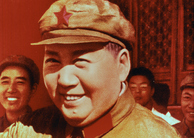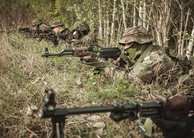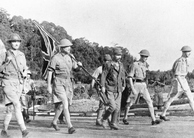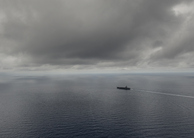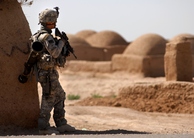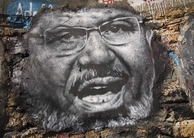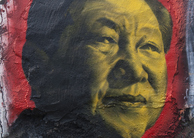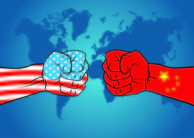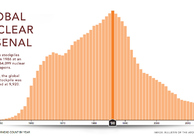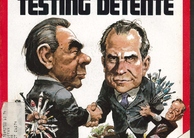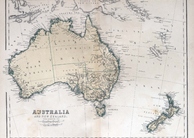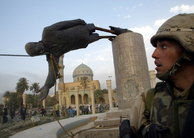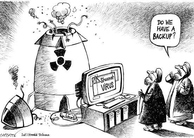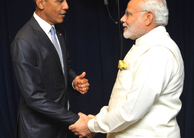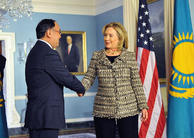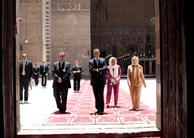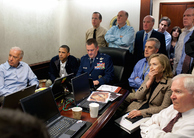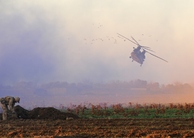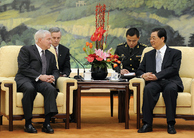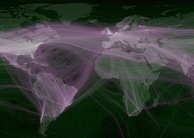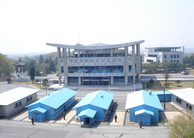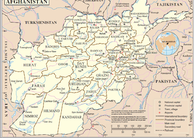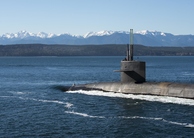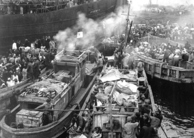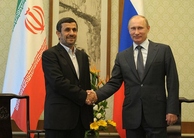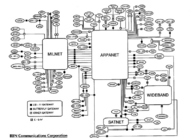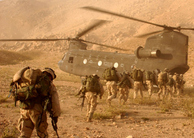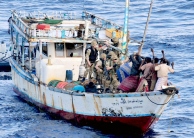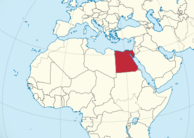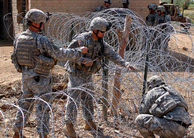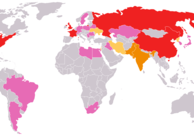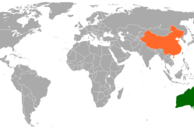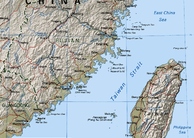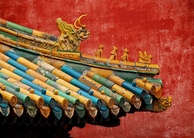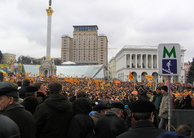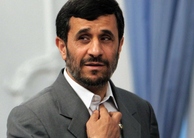|
International Relations (tagged articles)
The keyword International Relations is tagged in the following 81 articles.
2022, Vol. 14 No. 02
In popular International Relations (IR) theory, knowledge production is often dismissed as an objective process between the researcher and the empirical world. This article rejects this notion and contends that the process of knowledge production... Read Article »
2022, Vol. 14 No. 01
The study examines the degree to which Xi Jinping has brought about a strategic shift to the Chinese outward investment pattern and how this may present significant political leverage and military advantages for China in the Indian Ocean Region (... Read Article »
2021, Vol. 13 No. 09
The COVID-19 crisis has exacerbated current global challenges. However, this article argues that this time of crisis can also be a unique opportunity for the existing global economic institutions - G20, WTO, IMF, and World Bank (WB) - to make the... Read Article »
2021, Vol. 13 No. 02
During the 2015 refugee crisis Chancellor Angela Merkel allowed refugees to enter Germany in unprecedented numbers. Her historic decision to adapt the so-called “open-door policy” continues to shape contemporary German politics. More... Read Article »
2020, Vol. 12 No. 09
Of the thousands of potential cases that could have been investigated by the International Criminal Court (ICC), only 44 individuals have been indicted, with 45 cases currently before the ICC. Further, only 14 out of the 45 have resulted in a complete... Read Article »
2020, Vol. 12 No. 02
Between 2012 and 2017, the number of asylum applications from El Salvador, Guatemala, and Honduras—countries collectively known as the Northern Triangle—increased by eight hundred percent[1]. The Trump administration has responded by... Read Article »
2019, Vol. 11 No. 10
This article aims to present the biopiracy of traditional knowledge from India by the United States, which has occurred directly through the use of patent law and indirectly through economic power and cultural imperialism. Throughout this essay,... Read Article »
2018, Vol. 10 No. 10
After joining the European Union (EU) and the North Atlantic Treaty Organization (NATO) in 2004, Estonians felt secure and in charge of their future. However, following the 2007 Bronze Horseman incident in the Estonian capital of Tallinn which included... Read Article »
2017, Vol. 9 No. 12
The relationship between realism and nationalism is not clearly articulated in International Relations literature. On one hand, realism and nationalism are viewed as contradictory forces, standing against one another as reason to emotion, reality... Read Article »
2017, Vol. 9 No. 11
This article uses two decision-making theories – rational choice theory and prospect theory – to examine China’s resolution to intervene militarily in the Korean War. I argue that Chairman Mao Zedong was in a domain of loss both... Read Article »
2017, Vol. 9 No. 10
The United States government started exploring the soft power potential of student and scholar exchange programs as early as 1908, with the establishment of the Boxer Indemnity Scholarship Program.[1] The father of the theory of soft power, Joseph... Read Article »
2017, Vol. 10 No. 2
It is often thought that great military strategists do not engage in simple, frontal assaults, but instead devise complex plans meant to deceive, manipulate, and surprise their enemies. However, do such strategies always lead to victory? If not,... Read Article »
2017, Vol. 9 No. 04
Since the end of the Second World War, scholars of British military history have busied themselves with attempts to explain the British defeat at Singapore to Japan in February 1942. Research reveals that there existed what Peden has called an &... Read Article »
2017, Vol. 9 No. 03
In the year 1648, two treaties signed in the cities of Osnabruck and Munster, collectively known as the Treaty of Westphalia, brought into creation a notion of statehood that would go on to shape and influence the formation of nation states across... Read Article »
2017, Vol. 9 No. 02
Following the failure of Structural Adjustment Programmes (SAPs) in the 1980s, and the liberal triumphalism caused by the end of the Cold War, development discourse underwent a significant transformation. Key to the new development paradigm was... Read Article »
2016, Vol. 7 No. 1
Foreign policymakers, academics, and regional pundits have all acknowledged the importance of the South China Sea. This region, rich in resources and trade, is the subject of intense territorial contest and is perpetually at risk for escalation... Read Article »
2016, Vol. 7 No. 1
The rise of modernized and efficient militaries competing for dominance against the United States' military has resulted in increased eruptions of conflict globally. A majority of decisions by the Joint Chiefs and EUCOM about long-term U.S. military... Read Article »
2016, Vol. 8 No. 10
In January of 2011, massive protests emerged against Hosni Mubarak, the autocratic leader of Egypt since 1981. After Mubarak stepped down, there was a period of relative freedom for Egyptians, which unfortunately came crashing down roughly two years... Read Article »
2016, Vol. 8 No. 10
China and the Chinese Communist Party (CCP) that leads it has historically limited itself in regards to projecting power and inserting itself into international disputes and affairs. With the exception of its involvement in the Korean War, most... Read Article »
2016, Vol. 8 No. 09
American media generally depicts nationalism as a negative concept, which is threatening to peace and security. However, in its broadest sense, nationalism can incorporate two phenomena: “(1) the attitude that the members of a nation have... Read Article »
2016, Vol. 8 No. 08
Nuclear weapons are the most powerful and destructive weapons held in the aresenals of any modern states. Since the creation of the nuclear bomb, many have feared that a nuclear war could lead to the end of life on earth as we currently know it.... Read Article »
2016, Vol. 2015/2016 No. 3
Détente is generally understood as a relaxation of international tension. However, there are many conceptions and characteristics of détente: superpower détente (such as ‘Nixinger's, Leonid Brezhnev's or Mao Zedong/ Zhou... Read Article »
2016, Vol. 8 No. 06
The occurrence of state failure is an important concern for Australia as it pertains to the security and stability of the broader region (Ezrow & Frantz 2013, pp. 16-17). Rotberg (2003, p. 1) defines state failure as the result of internal violence... Read Article »
2016, Vol. 6 No. 2
The efficacy of efforts by the United States government to influence regime change in foreign nations has been increasingly called into question. Motivated by these statements of skepticism, the study herein provides a statistical analysis of the... Read Article »
2016, Vol. 6 No. 2
Though somewhat counterintuitive given terrorist organizations' clandestine nature, such organizations do engage in strategic alliances and partnerships with one another. A handful of scholars have grappled with terrorist alliances, but a gap in... Read Article »
2016, Vol. 2015/2016 No. 2
Cyber security is a compelling problem for scholars of International Politics. Internet technology is so thoroughly integrated into civil society, commerce, governance, critical infrastructures, intelligence collection and law enforcement that the... Read Article »
2016, Vol. 2015/2016 No. 2
In Cyber War Will Not Take Place1, Thomas Rid develops his argument on the concept of "cyberwar", previously formulated in an article of the same name2 published in January 2012. His chief point is that "cyber war has never happened in the past,... Read Article »
2016, Vol. 2015/2016 No. 2
In June 2012, two years after the initial discovery of the Stuxnet worm,1 an excerpt from David Sanger's then soon to be released book entitled Confront and Conceal was published in the New York Times.2 This piece, purportedly based on the testimony... Read Article »
2016, Vol. 2015/2016 No. 2
Cybersecurity is presented in the growing literature on the subject as an essentially "slippery" object for state security.1 The Internet puts a lot of stress on the conventional conception of state security as the insurance of the state's survival... Read Article »
2016, Vol. 9 No. 1
Starting with a high profile push through the region in 2011, the Obama Administration has made the "Pivot to Asia" a central part of American foreign policy. Enlisting regional partners who share strategic interests will be critical to ensuring... Read Article »
2015, Vol. 5 No. 1
Supporting participants in intrastate conflict often appears as a relatively cheap, effective strategy to address security concerns by weakening and distracting enemies participating in those conflicts if not by outright eliminating them. Rebels... Read Article »
2015, Vol. 7 No. 05
Their protest challenged the paradigm of power as it existed at the time, specifically by revealing the limitations of the state's ability to exercise its will even in a situation where the state wielded seemingly absolute authority.[1] Power, as... Read Article »
2015, Vol. 8 No. 2
America’s record of engagement in Central Asia[i] has been extensive during its post-9/11 era of adventurism. Between its vast military infrastructure and its explosive expansion of new commercial and security networks, the US has invested... Read Article »
2015, Vol. 7 No. 02
For a country approximately the size of New Jersey, Israel certainly garners its share of widespread international attention. It is scrutinized, dissected, and more often than not, demonized under the microscope of the global media. In spite of... Read Article »
2015, Vol. 7 No. 02
The Haqqani Network has proven itself to be one of the most deadly, daring and inventive terrorist organizations in modern times. Based in the Pakistani tribal lands of North Waziristan, the network has a deep relationship both with the Pakistani... Read Article »
2015, Vol. 2014/2015 No. 1
British troops will be winding up their operations in Afghanistan by the end of next year. There may be other specialised things British troops will do thereafter, depending on what happens in Afghanistan from 2015. But sustained ‘combat operations... Read Article »
2014, Vol. 6 No. 10
Is China building a harmonious world? In order to answer this question, it is necessary go beyond simply reviewing the official narrative of the 'harmonious world' policy and instead consider it in relation to China's international and domestic... Read Article »
2014, Vol. 6 No. 08
To assert that Kashmir has been at a perennial crossroads is a gross understatement. For the good part of sixty years, Indian, Pakistani, and Kashmiri interests have been tussling over the disputed region. For the most part, though, the South Asian... Read Article »
2014, Vol. 4 No. 2
Prospect theory, a behavioral economic theory first proposed by David Kahneman and Amos Tversky in 1979, has evolved into a seminal theory on risk decision-making applicable in a wide range of fields. Yet in both political science and international... Read Article »
2014, Vol. 4 No. 2
This paper investigates factors that contribute to the effectiveness of international economic sanctions. A review of existing literature on sanctions reveals that scholars of economic statecraft have largely neglected to consider two variables &... Read Article »
2014, Vol. 7 No. 2
The balance of terror created by the presence of weapons of mass destruction (WMDs) on the Korean peninsula has escalated the sense of uncertainty in East Asia, jeopardizing both the region’s security and progress towards political and economic... Read Article »
2014, Vol. 6 No. 04
After 35 years of war in Afghanistan[1], the year 2014 brings two milestones capable of major impact on the future – for better or worse. Firstly, the presidential elections that took place in early April, so far reported to be relatively... Read Article »
2014, Vol. 2013/2014 No. 1
There is a widespread belief that as societies and governments become increasingly reliant upon information technology, they in turn are becoming more vulnerable to a whole range of cyber-threats.1 Whether these dangers are capable of generating... Read Article »
2013, Vol. 4 No. 1
With nuclear proliferation a major threat to international security, this study examines the factors that led three countries to denuclearize by applying Scott Sagan's three models: security, domestic politics, and norms. Rather than only observing... Read Article »
2013, Vol. 7 No. 1
South Korea, also known as the Republic of Korea (ROK), is a remarkable country in many ways. It survived the Korean War, supported by American military assistance. It successfully transitioned to democracy after nearly 40 years of authoritarian... Read Article »
2013, Vol. 5 No. 10
This article highlights the European Commission’s role within the European Union (EU), which has been weakened over time. Through this essay various aspects of the Commission’s power in relation to the structure and procedures of comitology... Read Article »
2013, Vol. 5 No. 10
This paper analyzes state refugee policies through the lenses of foreign policy behavior and policy linkage. The case studies compare variations in Chinese state policies towards refugees from North Korea, Myanmar, and Vietnam. Through an additional... Read Article »
2012, Vol. 2 No. 1
Over the past 20 years, the international order has been characterized by the conflict between the United States' desire for isolationism and its desire to maintain hegemony. While the United States has initiated and continued wars in Afghanistan... Read Article »
2012, Vol. 4 No. 12
While in many cases it serves as a stabilizing factor in the international system, and can even be called a force for good, international law cannot be considered “law” when applied to states or state action. To be considered “... Read Article »
2012, Vol. 6 No. 1
Myanmar, sitting on the border between South and Southeast Asia, reflects a historically oppressive state with internal struggle as surrounding countries compete for influence. In 1990, the government promised multi-party elections only to ignore... Read Article »
2012, Vol. 4 No. 11
It has been argued that the global trading system is supposed to promote global efficiency and growth, but a rising chorus of voices is asserting that the global economy operates in a way that is fundamentally unfair and seems to be ‘rigged... Read Article »
2012, Vol. 4 No. 08
The question of whether economic relations have an impact on interstate military conflict has divided scholars and political thinkers since the Enlightenment. Kant claimed that economic interconnectedness among states would contribute to long-term... Read Article »
2012, Vol. 4 No. 08
The relationship between trade and conflicts between countries in South Asia is important to examine because of the rising prominence of this region of the world. Security issues are of utmost concern when considering the damaging effects that armed... Read Article »
2012, Vol. 4 No. 04
Russia and Iran have a long history of being geographic neighbours, rivals, competitors and partners - a history which has coined mutual expectations, stereotypes and interactions. Still present in the Iranian collective memory, Tsarist Russia expanded... Read Article »
2012, Vol. 4 No. 04
Today, we live in the aftermath of the Internet revolution. Humanity has never before been more interconnected or had as much access to the same tools and information. As a driving force behind globalization and modern progress, the Internet enables... Read Article »
2012, Vol. 4 No. 03
The Internet is the world’s great equalizer. As the driving force behind globalization and modern progress, the Internet has enabled us to communicate with others across the world almost instantly and provides a medium for cultural, informational... Read Article »
2011, Vol. 3 No. 12
The political history of the Middle East is a complex story wrought with instability, conflict, religious and ethnic cleavages, and artificial imperial and colonial borders. These challenges manifest themselves in varied political systems, norms... Read Article »
2011, Vol. 5 No. 1
When should the United States intervene militarily in weak countries? This is a topic of pressing international concern because the United States keeps intervening in weak countries. We are currently involved indirectly in Libya and very deeply... Read Article »
2011, Vol. 5 No. 1
In 2001, German President Johannes Rau made a statement that divided Germany. In an interview with a television station, Rau said that although he is “pleased and grateful” to be German, he cannot be “proud” of it–&... Read Article »
2011, Vol. 3 No. 09
Since the early 1990s, rampant piracy off the coast of Somalia has become a major issue for global trade and security, prompting strong responses from the international community. In 2010 alone, the collective cost of ransom money, military protection... Read Article »
2011, Vol. 3 No. 09
In the era since the removal of the monarchy in Egypt, a distance seems to have developed between the Egyptian people and the African aspect of their identity. This kind of sentiment has also been corroborated by Egypt’s elite such as Isma... Read Article »
2011, Vol. 2011/2012 No. 1
Among European states in the aftermath of the Second World War, multilateral cooperation was seen as a long term stabilisation for peace. The European Union (EU), since its establishment in 1957 as the European Coal and Steel Community with six... Read Article »
2011, Vol. 2011/2012 No. 1
The first decade of the twenty-first century was a period of change for Russia. The crisis of the 1990s was/were overcome and its international posture has improved. However, the scope and the stability of the shift are debatable and there is no... Read Article »
2011, Vol. 4 No. 2
Recently, earthquakes in Haiti, Chile and New Zealand, mudslides in Brazil, a catastrophic oil spill in the Gulf of Mexico, the fallout from the fiscal crisis in Greece, and refugee flows out of Libya have highlighted the continued relevance of... Read Article »
2011, Vol. 4 No. 2
Richard Burt is the former U.S. ambassador to Germany, and recently played a critical leadership role in the ratification of the Strategic Arms Reduction Treaty (START). Burt had previously served as a correspondent for the New York Times, and is... Read Article »
2011, Vol. 3 No. 04
The Islamic Republic of Iran today sits at the crossroads of Asia between the Middle East and Central Asia. This inherently places it in very close proximity to over half of the world's known energy reserves both in the form of petroleum and natural... Read Article »
2011, Vol. 2010/2011 No. 1
The territorial claims on the North Pole are the latest contentious grey area amongst world forces – Russia, Canada, the USA, Denmark and Norway. The events could have been the perfect opportunity for a lesson in puppet mastery on the international... Read Article »
2010, Vol. 2 No. 12
John Howard, then-Prime Minister of Australia, claimed that, ‘I count it as one of the great successes of this country’s foreign relations that we have simultaneously been able to strengthen our long-standing ties with the United States... Read Article »
2010, Vol. 2 No. 06
In 2005, during a period of heightened tensions between China and Taiwan and with the United States deeply embroiled in two major wars in Iraq and Afghanistan, the leading authority on East Asian security within the National Security Council nevertheless... Read Article »
2010, Vol. 2 No. 01
Since 1989, when economist John Williamson first conceived of the economic and policy recommendations known as the Washington Consensus (Williamson, 1989), this Consensus became generally accepted as the most effective model by which developing... Read Article »
2010, Vol. 2009/2010 No. 1
An article about Scotland. In an International Politics Journal. This may seem odd, but it could become relevant in the next few years. It is possible that in twenty years that Scottish Politics will be International. Nationalists in Wales and Scotland... Read Article »
2010, Vol. 2009/2010 No. 1
Such was the BBC’s indictment of the Commonwealth after its 1950 Foreign Minister’s conference in Colombo.1 Yet despite the lampoons in its infancy, the Commonwealth of Nations has, in 2009, reached its 60th Anniversary, having increased... Read Article »
2010, Vol. 2009/2010 No. 1
From Heraclitus to Marx, intellectuals have often recognised changes in the flow of history. Certain periods tend to be more dynamic than others but, in the end, all things move. Just as the past ninety years have been some of the most memorable... Read Article »
2009, Vol. 3 No. 1
Over the two decades of post-Soviet history of modern Russia, its foreign policy has gone through several distinct periods and long-term trends. The periodization of the new Russia’s foreign policy includes a “romantic” or &ldquo... Read Article »
2009, Vol. 3 No. 1
The Japanese general election on August 30, 2009 ousted the Liberal Democratic Party (LDP), which had governed almost uninterrupted for 54 years. In its place rose the Democratic Party of Japan (DPJ) and its leading man Yukio Hatoyama. What follows... Read Article »
2009, Vol. 2 No. 2
Is America really in decline as a global superpower? We examine current arguments for America's economic decline and argue that a purely economic analysis is insufficient for evaluating a country's status as a global superpower. Our comprehensive... Read Article »
2009, Vol. 2 No. 2
Ambassador Einaudi spoke at Cornell at the invitation of the Mario Einaudi Center for International Studies to commemorate the 20th anniversary of the Luigi Einaudi Chair in European and International Studies named after his grand-father. The Board... Read Article »
2009, Vol. 2 No. 2
The responsibility of Georgian President Michael Saakashvili for the war with Russia continued to be hotly debated in Georgia, Russia and the world several months after its end.1 Indeed, there are various views about Saakashvili's decision to attack... Read Article »
2008, Vol. 1 No. 2
South Asia is not in itself the primary zone of interest of China. However, China has since long used the region’s dynamics to achieve some of its most important strategic goals. Moreover, since India wishes to establish “its rightful... Read Article »
2007, Vol. 1 No. 1
Fifteen years ago, the collapse of the bipolar world overwhelmed the installed world order. The USA became the only superpower standing and leading the world organization. They have now to deal with emerging countries such as China and India. On... Read Article »
2007, Vol. 1 No. 1
In recent years, the turbulent nature of politics in the Middle East has captured the attention of nations worldwide. Iran, in particular, has garnered more than just alarmed glances due to its aggressive foreign policy against the US, as evident... Read Article »
Expedited Article Review
Submit an article and get a decision fast.
If you need a fast decision, INQUIRIES Journal offers expedited processing of your submission for a small fee. Depending on the expedited review option you choose, you can receive a decision in as few as 5-days.
In addition to a shorter review period, the fee supports the journal's continued operation and open-access publishing model. Standard submissions are always free. Submit Now » - Submit an Article to Inquiries Journal -
|




















